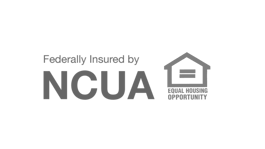World Elder Abuse Awareness Day is June 15, 2020. On this day, older people, their family and caregivers around the world will recognize the risks of elder abuse and neglect while learning how to protect themselves and their loved ones.

What is elder abuse and neglect?
Elder abuse is physical, emotional, financial or sexual harm inflicted upon an older adult or neglect of their welfare by people who are responsible for their care. In the U.S. alone, approximately 1 in 10 people aged 60-plus have experienced some form of elder abuse.
According to the National Institute of Health (NIH), older people who have been abused have a 300% higher risk of death when compared to those who have not been mistreated.
Warning signs of elder abuse
If you suspect abuse, look for the following warning signs:
- Unexplained injuries
- A report of drug overdose or failure to take medication
- Signs of being restrained
- Caregiver’s refusal to let you see the person alone
- Threatening, belittling, or controlling caregiver behavior
- Unusual weight loss or loss of appetite
- Untreated physical problems, such as bed sores
- Unsanitary living conditions
- Being left dirty or unbathed
- Unsuitable clothing for the weather
- Unsafe living conditions
- Unexplained withdrawals from financial accounts
- Duplicate billings for the same medical service
- Evidence of overmedication or under-medication
- Preventing elder abuse and neglect
Caregivers for older people who are feeling overwhelmed by their responsibilities may be in danger of abusing or neglecting them. Prevent burnout with the following tips:
- Take immediate steps to relieve stress, including mindfulness exercises and a break from work.
- Request help from friends, relatives or local respite care agencies, or find an adult day care program.
- Put self-care first.
- Seek professional help for depression.
If you are not the older person’s primary caregiver, take the following steps to prevent abuse of loved ones at the hands of the person directly responsible for their care:
- Call and visit as often as possible. This will enable you to frequently monitor physical condition and home environment.
- Offer to stay with the older person so the caregiver can have a break. If possible, try to do this on a regular basis.
- Monitor medications to ensure the amounts being taken correspond with the prescription dates.
- Watch for financial abuse by asking to check financial accounts and credit card statements for unauthorized transactions.
Resources and support
If you suspect elder abuse and the victim is in need of immediate assistance, dial 911. You can also call 1-800-677-1116 for support, or find local resources at the National Center on Elder Abuse.


